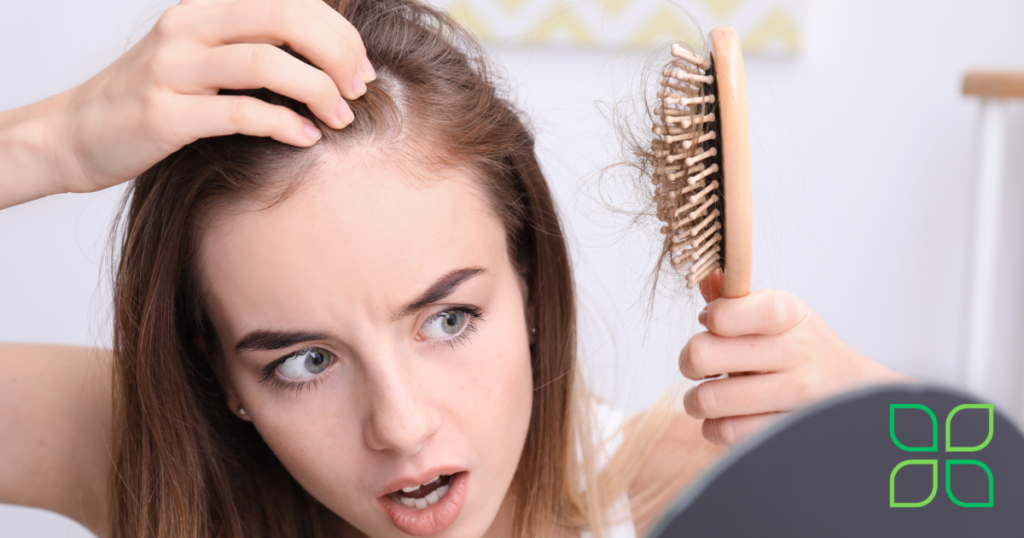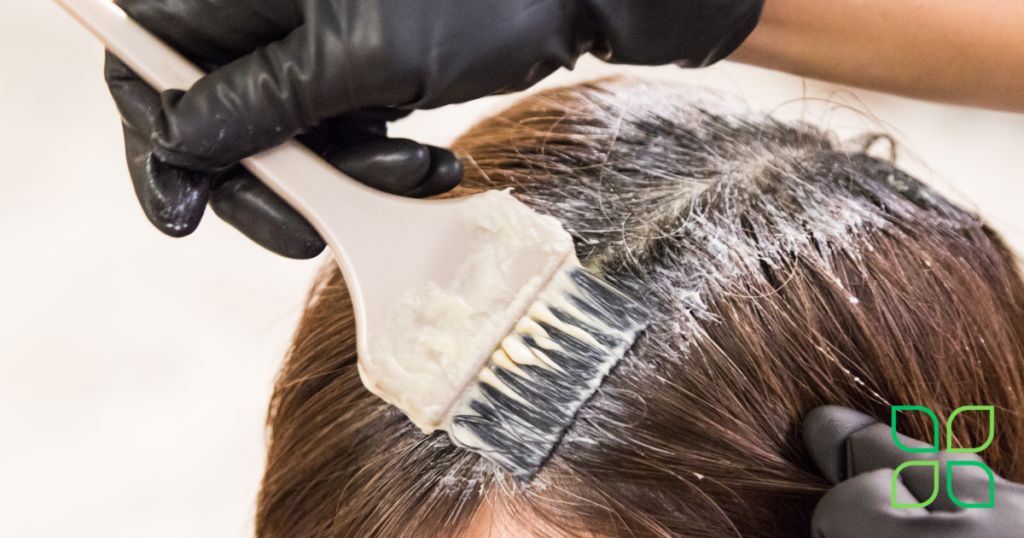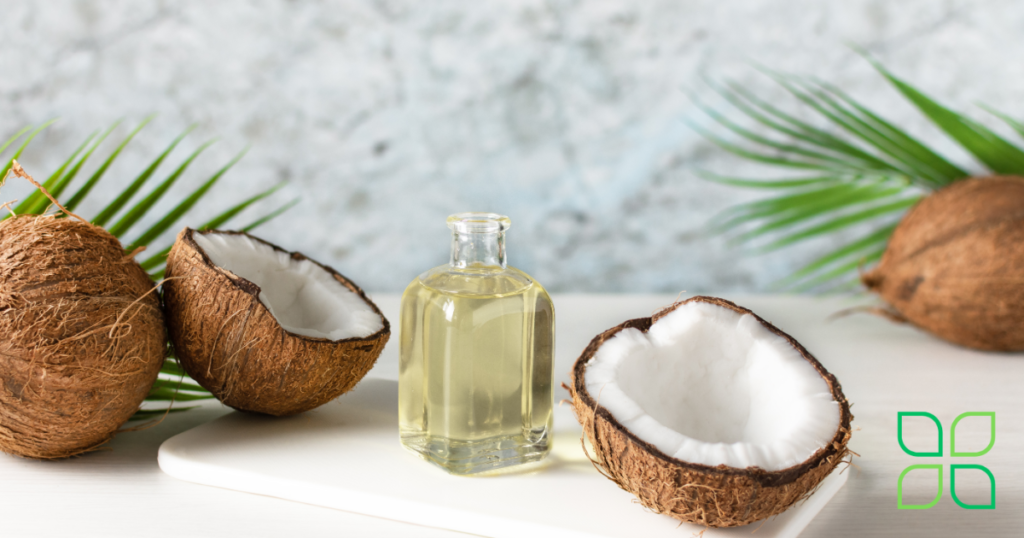
Addressing Hair Loss: Options for Treatment and Regrowth
Hair loss is a common concern for many individuals, and it can be a distressing experience.
Not only do bald spots affect our physical appearance, but they can also significantly impact our self-esteem and overall well-being. The emotional toll that hair loss takes on individuals cannot be underestimated. It can make us feel vulnerable, self-conscious, and even embarrassed. The fear of being judged or seen as less attractive can lead to a loss of confidence and a decline in social interactions. Something as seemingly simple as running a hand through our hair or catching a glimpse of ourselves in the mirror can suddenly become a source of distress and anxiety.
Fortunately, there are options available to address hair loss and promote regrowth. From natural remedies to over-the-counter treatments to advanced medical treatments, individuals have a range of choices tailored to their specific needs. If hair loss continues even after home and over-the-counter treatments, then seeking professional advice and exploring these avenues can provide hope and a sense of control in what can feel like a hopeless situation.
Understanding the Causes of Hair Loss
We will soon explore solutions to hair loss, but first, it’s essential to understand what causes hair loss in the first place.
Let’s start by understanding that there are different type of hair loss from androgenetic alopecia to alopecia areata and traction alopecia. These are three of the most common types of hair loss.
Various factors contribute to hair loss, such as genetics, hormonal changes, medical conditions, and even certain medications. Understanding the root cause of hair loss can play a crucial role in finding the right solutions and treatments.
Here are several possible causes of hair loss:
1. Stress: Uncontrolled or unmanageable stress is a significant factor in hair thinning. People often notice hair loss during periods of anxiety and stress. While physiological stress-related hair loss is usually temporary, hair loss caused by psychological stress can be more challenging to address. Lifestyle changes and stress management techniques may be necessary to mitigate its effects.
2. Prescription Medications: Certain medications can have hair loss as a side effect. Chemotherapy is a well-known example, but hair loss can also occur due to medications used to treat autoimmune diseases, antidepressants, and anticoagulants. If you suspect that your medication is causing hair loss, consult with your healthcare provider for alternative options.

3. Hormonal Imbalances: Hormonal changes can also contribute to hair loss. Women may experience hair loss due to hormonal imbalances caused by childbirth or menopause. In men, age-related changes in hormone composition can lead to hair loss. The hormone dihydrotestosterone (DHT) can trigger hair follicles, resulting in hair loss.
4. Nutritional Deficiencies: Proper nutrition is essential for healthy hair growth. While hair is primarily composed of protein, it requires various minerals and vitamins to thrive. Essential nutrients such as zinc, iron, folic acid, vitamin D, and vitamin B12 are crucial for maintaining healthy hair. Inadequate intake of these nutrients can contribute to hair loss.
5. Skin Infections: Certain skin infections and disorders can contribute to hair thinning. Scalp psoriasis, for example, can cause hair loss. Additionally, severe dandruff cases can result from an infection and lead to hair thinning. Treating the underlying skin condition can help prevent further hair loss.
6. Over-treating Hair: Regularly subjecting your hair to excessive treatments and experimenting with different products can weaken hair follicles and cause damage. Perms, color treatments, relaxers, harsh shampoos, and conditioners can all contribute to hair thinning. It is vital to stop using harmful products and adopt a better hair care routine to prevent further damage.

7. Thyroid Disorders: The thyroid gland regulates the body’s growth and maintenance. Any irregularities in thyroid activity can lead to issues, including hair loss. Both hypothyroidism (underactive thyroid) and hyperthyroidism (overactive thyroid) can impair the maintenance of body tissues, including hair. Medications used to treat thyroid disorders can also cause hair loss.
Experiencing hair loss can be distressing, but understanding the potential causes can help you address the issue effectively. Over-treating hair, hormonal imbalances, stress, nutritional deficiencies, thyroid disorders, medications, rapid weight loss, and skin infections can all contribute to hair thinning. By identifying the underlying cause, you can take appropriate measures.
Exploring Natural Nutrients That Support Hair Growth
Here, we will dive into some natural ingredients studied to boost hair. These ingredients have been reviewed, and there is literature on them. Let’s explore their mechanisms of action and potential benefits for hair restoration.
1. Vitamin D: Vitamin D is essential for hair health. It is a hormone that has numerous benefits for the body, including promoting hair health. Many people are deficient in vitamin D, especially during the winter months when exposure to sunlight is limited. Ensuring adequate levels of vitamin D can help support healthy hair.
2. Zinc: Ensuring adequate zinc and trace minerals levels is also essential for hair health. If you are on a keto diet or intermittent fasting, you may be lacking in these trace minerals, which can cause hair to become brittle and prone to breakage. Zinc and trace minerals can be found in foods like shellfish, or you can use products that contain these minerals and apply them topically.
3. Biotin: Also known as vitamin B7, biotin is crucial for various bodily functions. One notable role is aiding in protein synthesis, enabling the body to utilize and process proteins effectively. This function is particularly significant for the production of keratin, a structural protein that contributes significantly to the growth and maintenance of healthy hair.

4. Azelaic Acid: Derived from grains such as wheat and barley, azelaic acid has been found to induce contact dermatitis and block five alpha reductase, an enzyme involved in hair loss. This means that it could positively impact the prevention or reduction of hair loss.
5. Rosemary Oil: A study made an exciting discovery: Rosemary oil, besides its aromatic properties, can improve blood flow in micro capillaries. Surprisingly, it was observed to be comparable to minoxidil, a well-known hair loss treatment.
6. Tea Tree Oil: Tea tree oil is antimicrobial and anti-inflammatory. These essential oils have been shown in a pilot study that a micro-emulsion containing tea tree oil was superior to minoxidil alone.
7. Pumpkin Seed Oil (PSO): PSO contains beneficial nutrients and blocks five alpha reductases. A randomized controlled trial showed significant increases in hair counts in men with androgenic alopecia who received PSO compared to a placebo.
8. Green Tea: Green tea extracts have anti-inflammatory and anti-carcinogenic properties. A study on mice showed hair regrowth in 33% of the group receiving green tea extracts.
9. Curcumin: This anti-inflammatory and immunomodulating agent has been shown to inhibit inflammatory cytokines associated with hair loss. It also inhibits androgen receptor expression, which is involved in hair miniaturization.
10. Garlic: Garlic not only adds a flavorful punch to various dishes but also offers some surprising health benefits. One such benefit is its ability to enhance blood circulation in the scalp. In 1991, a study on this aromatic bulb demonstrated a remarkable 55% increase in capillary skin perfusion.
11. Saw Palmetto: Saw palmetto is a natural inhibitor of 5-alpha reductase and has shown modest hair regrowth in patients with androgenic alopecia in several studies.
12. Caffeine: Studies have shown caffeine stimulates hair growth in male and female hair follicles. It has also been found to counteract stress-induced hair damage and potentially prevent stress-induced hair loss.

13. Olive Oil: Olive oil has proven effective in dealing with psoriatic alopecia. This means that those suffering from this particular form of hair loss can surely rejoice at the potential benefits of this humble kitchen staple.
By being aware of what these ingredients can do for hair loss and making a conscious decision to include them in our daily diet, we give ourselves the best chance to regain our hair.
Boost Hair Growth with These Effective Hair Treatments
Here are three additional bonus natural home remedies with instructions you can create and implement today into your daily routine to grow more natural hair. Use these hair growth treatments to boost your hair growth journey.
1. Apple Cider Remedy:
Ingredients: 1 to 2 tablespoons of apple cider vinegar and 1 cup of water.
Procedure:
- Mix the apple cider vinegar and water.
- Use this mixture to rinse your hair after shampooing.
- Massage your scalp for one to two minutes, then rinse it with clean water.
- Repeat this process twice a week.
How it helps: Apple cider vinegar balances the pH level of the scalp, eliminates microbes that hinder healthy hair growth, and improves blood circulation in the area.
2. Castor Oil Remedy:
Ingredient: 2 to 3 tablespoons of castor oil.
Procedure:
- Lightly heat the castor oil and apply it to your scalp.
- Leave it overnight.
- Repeat this process three to four times per week.
How it helps: Massaging your scalp with warm castor oil stimulates hair roots, improves blood circulation, nourishes the scalp, and prevents dandruff.
3. Coconut Oil Remedy:
Ingredient: 2 to 3 tablespoons of virgin coconut oil.
Procedure:
- Lightly heat the virgin coconut oil and use it as a topical solution to massage it thoroughly into your scalp.
- Leave it on overnight or wash it off after 4 to 5 hours.
- Apply the oil 2 to 3 times a week.
How it helps: Coconut oil contains alpha tocopherol and healthy fats that rejuvenate and hydrate the scalp, promoting the growth of new hair and strengthening hair follicles.

These natural home remedies are a great start to getting your hair back naturally. By understanding what causes hair loss, what natural nutrients your body needs to support hair growth, and by adding some homemade treatments, it’ll give you the best chances at hair growth.
In conclusion, it’s important to remember that hair loss does not define our worth or beauty. Society’s perception of beauty should not dictate our self-worth. Embracing our uniqueness and cultivating self-love is paramount. Our hair, or lack thereof, does not determine our value as individuals.
While these natural remedies show promise for promoting hair growth and as an effective treatment, it is recommended to consult with a healthcare professional before, if no progress is made, so that you can seek out professional hair treatment options like hair transplant surgery and other alternative treatments.
Are you having any luck with any of these remedies?
